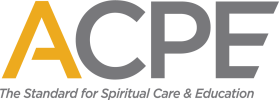- Denial of Provisional Accreditation or Initial Accreditation – a program applying for provisional accreditation or initial accreditation may have their application denied. If a program is denied provisional or initial accreditation, the Commission shall identify the specific issues that prevented the granting of the application. This action requires a program to notify students in writing of the denial within 7 business days, with a copy of the notice to the Commission.
- Withdraw Provisional/Accredited Member Status – This action ends the program’s accredited standing with ACPE and may occur:
- By an adverse action of the commission if the program is not in compliance with ACPE accreditation standards;
- By an adverse action of commission after the program in suspension fails to meet conditions for removal of suspension. Programs under suspension may not vacate adverse action by initiating voluntary withdrawal of membership;
- When a program has been without an ACPE Certified Educator for 24 months.
- By request of the accredited program. Accredited programs in good standing may request withdrawal of Accredited Member status or accreditation of any programs by written notification.
- Any withdrawal of Provisional/Accredited Member Status requires a program to notify students in writing of the adverse action within 7 business days, with a copy of the notice to the Commission.
*When finances may have an impact on the decision of the Commission, the program may seek review of new financial information before an adverse action decision is finalized, if all the following conditions are met:
- The financial information was unavailable to the program until after the decision subject to appeal was made.
- The financial information is significant and bears materially on the financial deficiencies identified by the Commission. The Accreditation Commission determines the significance and materiality.
- The only remaining area of non-compliance cited by the Commission in support of a final adverse action decision is the program’s failure to meet the ACPE standard pertaining to finances.
A program may seek review of new financial information as described only once and any determination made by the Commission does not provide a basis for an appeal.
Programs may appeal adverse decisions of the commission.


